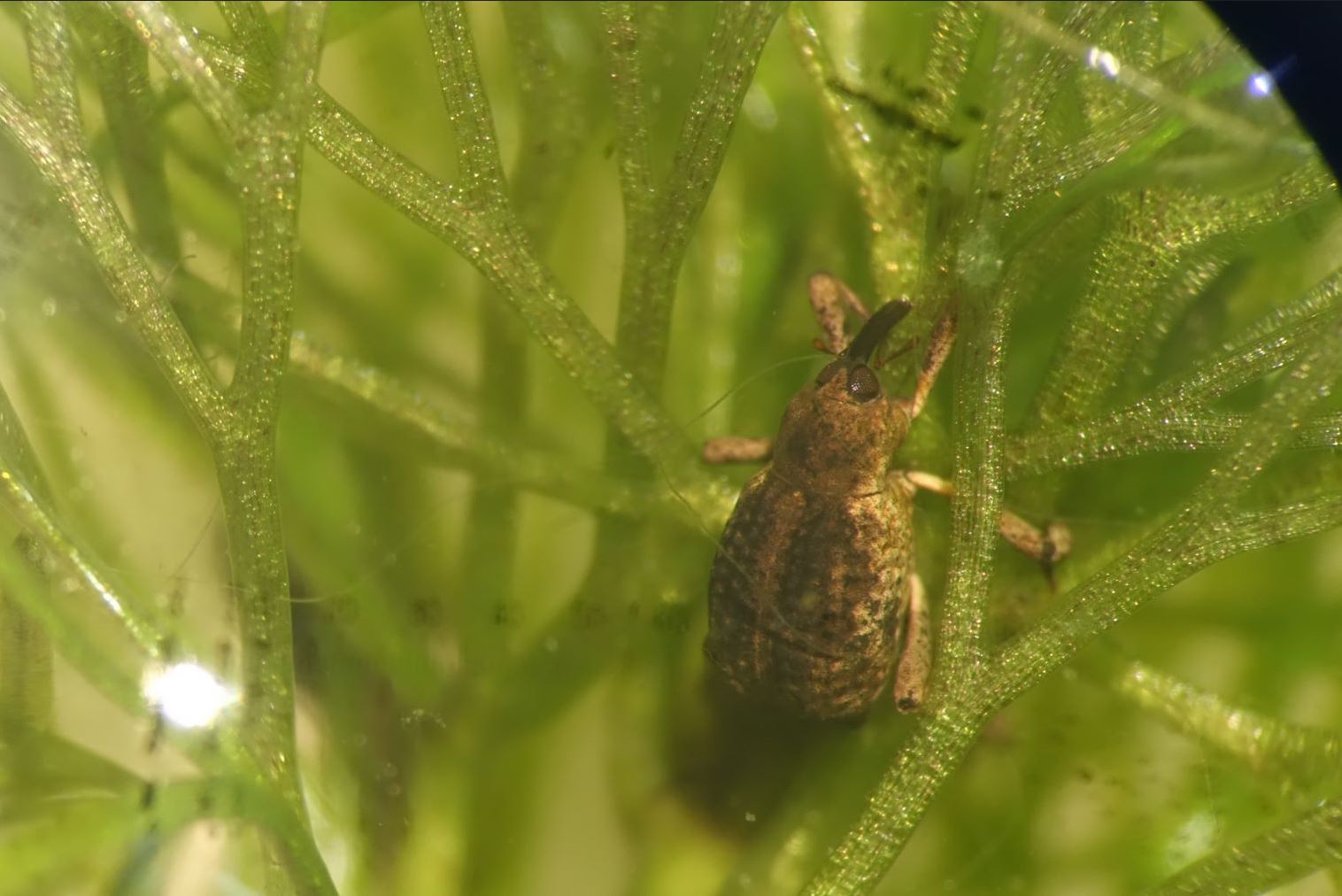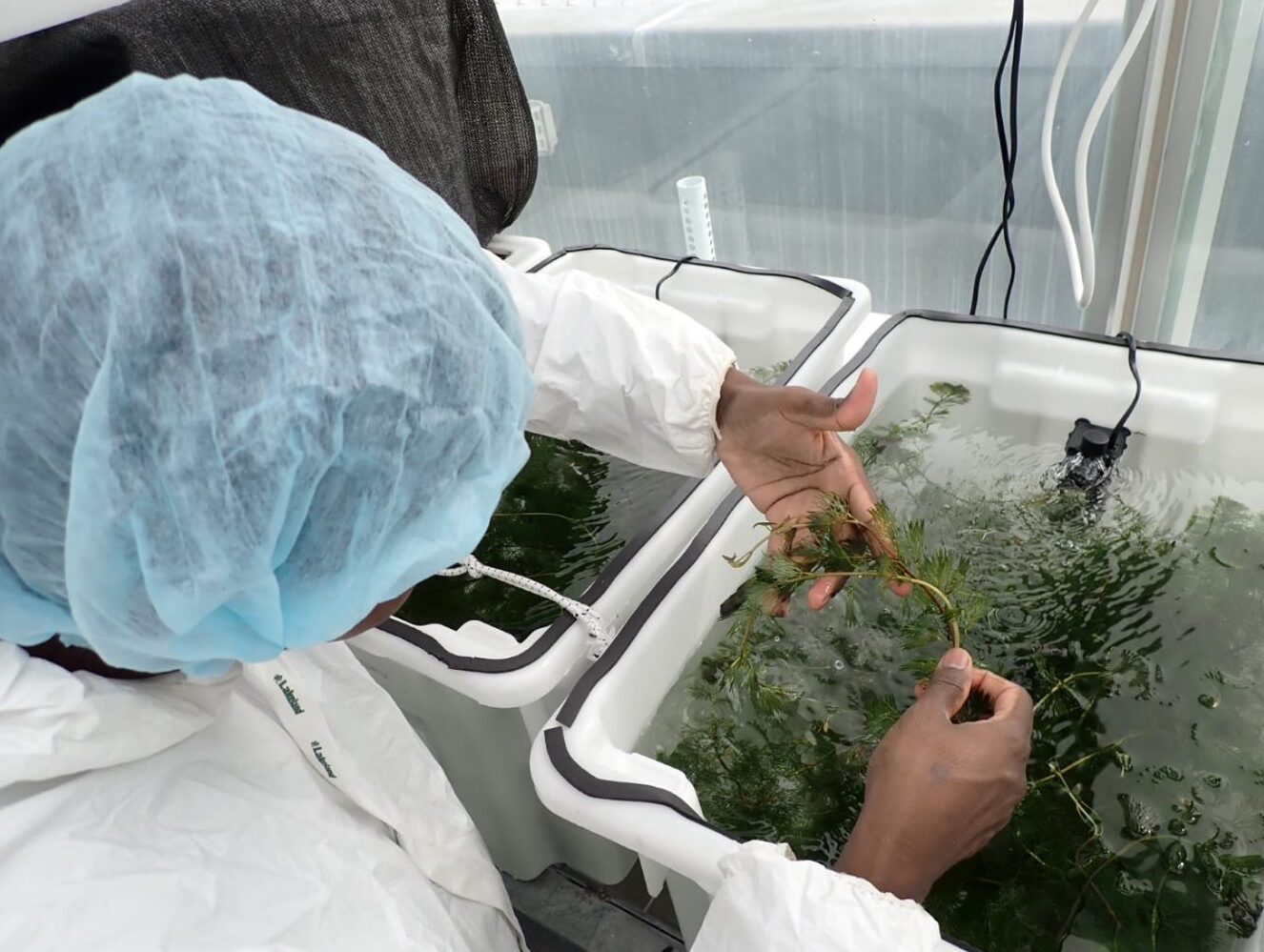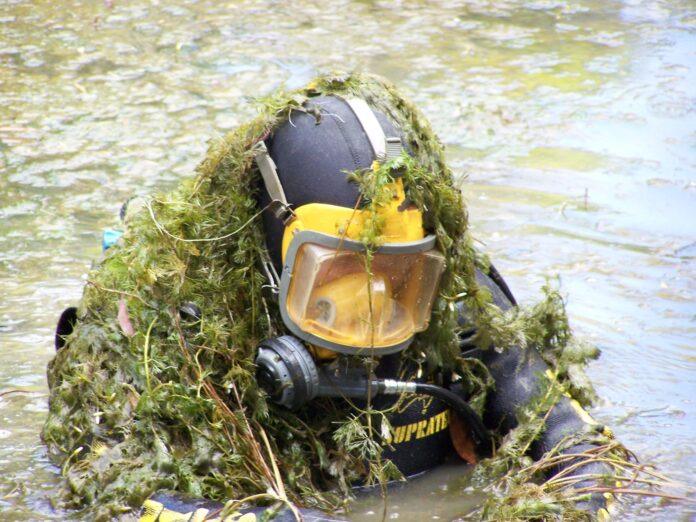A lake in the Noosa Shire is among those that will see a hungry little bug unleashed in a bid to eradicate an aquatic plant that’s taking over waterways.
The cabomba weevil is Australia’s newest agent of biological control on a meticulously planned mission to snuff out the cabomba plant.
The hungry little bug is a South American native, just like the introduced plant it’s been imported to attack.
But unlike the plant – which escaped into the wild after being brought to Australia in the 1960s as an aquarium plant – the weevil’s introduction has been scrupulously managed.
For about 20 years, scientists have been investigating biological control agents for cabomba, which can grow 5cm a day and outcompete native species.
Little by little over that time, the list of contenders was whittled down to just one after exhaustive tests showed the weevil is a very fussy eater and only will dine on the invasive plant.

CSIRO scientist Kumaran Nagalingam admits to some nerves after the weevil was released at three trial sites in Queensland, but he’s also sure all will be well given how much careful work has been done.
Further releases of weevils are planned for Lake Macdonald, near Noosa.
“Our research in South America shows that the cabomba weevil spends its entire life feeding only on cabomba and extensive research in Australian quarantine has confirmed the cabomba weevil is not a risk to native plant species,” he says.
In fact, the weevil could be a new best friend for Australian plants and animals, which have suffered under the weight of the cabomba invasion.
“It chokes the waterways and where it (dominates) you won’t find any other native plants growing,” Dr Nagalingam says.
“It outcompetes them and grows in a big mass, restricting the light penetration other plants need. It also affects water flow, making it stagnant, and that changes the nutrient mix.”
Knock-on effects even extend to platypus and water rats, with scientists recording lower populations in areas where cabomba has taken over.

One of the trial release sites is Lake Kurwongbah, a water asset north of Brisbane that’s managed by Seqwater.
With the help of the CSIRO, Seqwater has built a weevil nursery where new generations are being reared for future releases.
Dr Nagalingam says the weevil will never wipe out cabomba, but once the beetle has taken hold and starts to reproduce by itself it should radically reduce impacts on native species.
Seqwater has long supported efforts to find a biological control agent for cabomba in its home country of Argentina.
It’s hoped the weevil will help slash the money the water supplier has had to spend controlling the weed, which also reduces the water-holding capacity of dams and significantly adds to the cost of treating drinking water.
The CSIRO is also investigating releases in central Queensland, northern NSW and potentially the Northern Territory.
Help keep independent and fair Sunshine Coast news coming by subscribing to our free daily news feed. All it requires is your name and email. See SUBSCRIBE at the top of this article.





